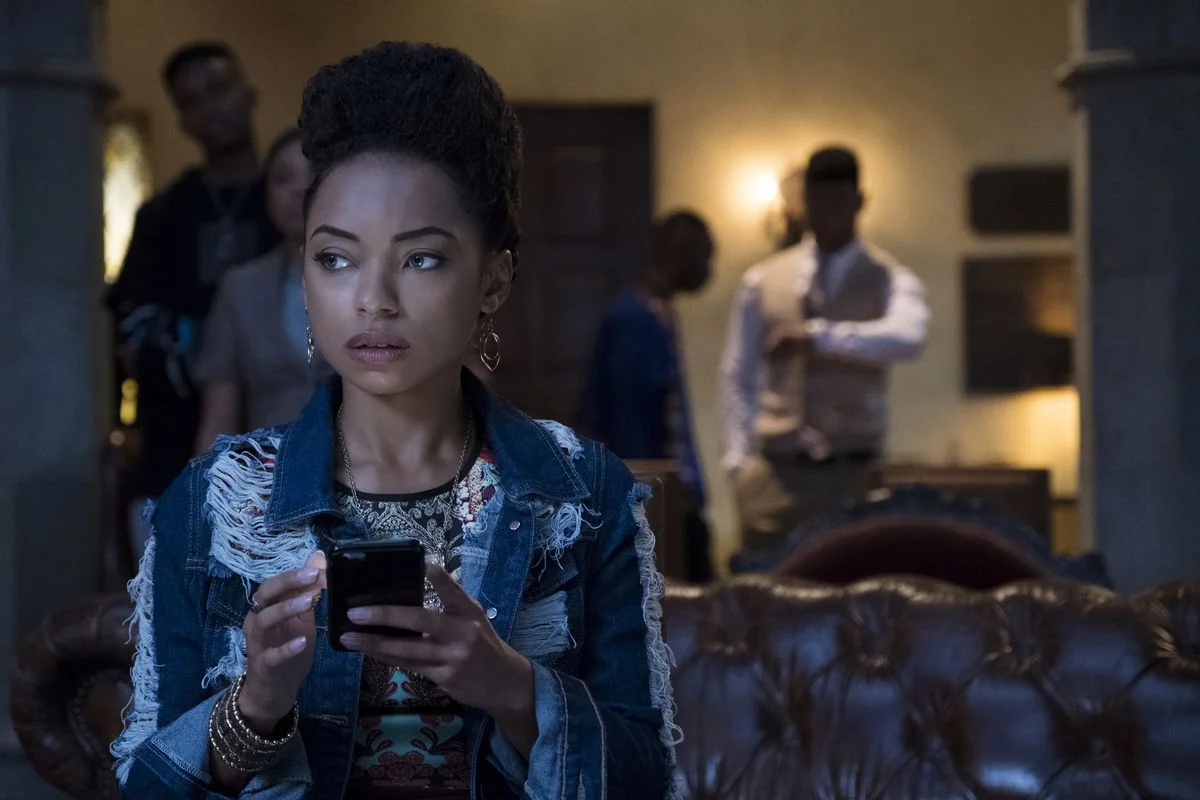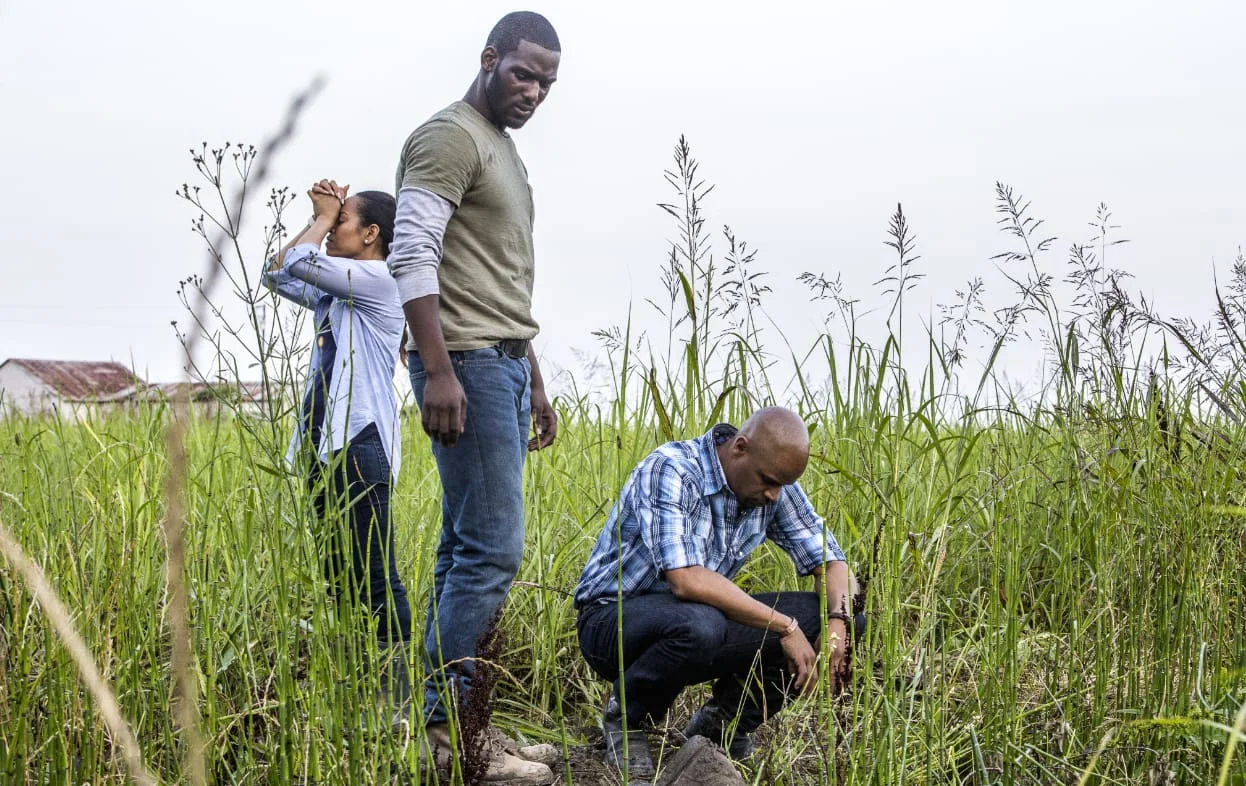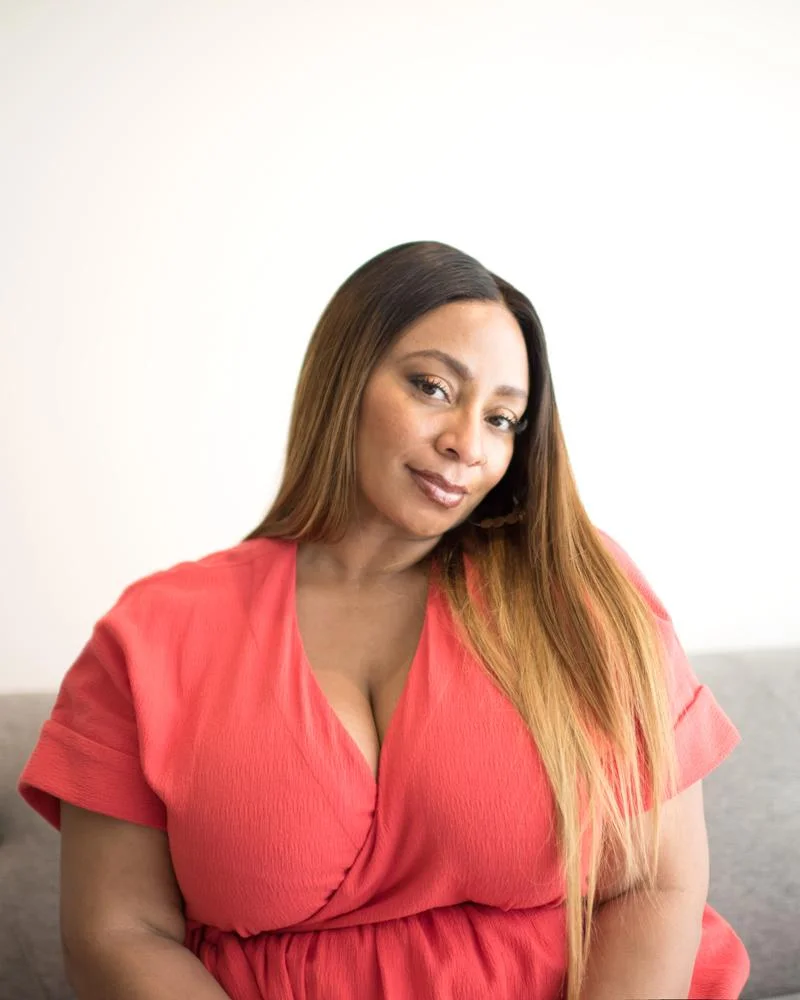Morgan Rhodes
Morgan Rhodes is the dazzling music supervisor behind emotionally moving films and television series including Dear White People, Selma, Queen Sugar, and Middle of Nowhere. Entering the music industry as a radio presenter, Morgan was lured into the field of music supervision through her association with the transcendent writer/director/producer, Ava DuVernay. Next, Morgan will be taking on Life Size 2, the long awaited sequel to the 2000 cult comedy, starring supermodel entrepreneur, Tyra Banks, and the notorious Lindsay Lohan. In addition to her work as a music supervisor, Morgan presently hosts Tuesday Reviewsday on KPCC, shedding light on the cultural landscape and providing a platform for emerging artists in the game. In our focused discussion, Morgan speaks on how contemporary music is transcending genre and the way in which social media has captured the public’s interest in film and television soundtracks.
Courtesy of Subject
First off, I want to recognize your taste for the eclectic and the profound. How did you initially develop your passion for music and what events led to your start in the field of music supervision?
I think my passion for music came from my parents — folks that really liked music a lot. Growing up, I heard a lot around the house, in the car, and in the church. Music was always a part of everything we did. In terms of how I got into music supervision, you know, it was a fortuitous series of events. I was doing a radio show on a station here in Los Angeles and got discovered there. The rest was history. I didn't have any training as a music supervisor, so I had to learn everything on the fly — clearance, how to choose music, the art of syncing music to pictures.
I was lucky to have a great mentor in Thomas Golubić, the head of the Guild of Music Supervisors who has exquisite taste in music. He was very generous in sharing knowledge with me. We met as DJ’s on KCRW. He was vital in helping pull me up in the game and showing me the ropes.
I understand that you have a background in radio presenting. Could you elaborate on that experience and give us some insights regarding the contemporary music landscape? How can it be curated and understood on a deeper level?
These days, I’m on KPCC — a show called Tuesday Reviewsday once a week. I'm just one of the music critics, and we talk about new releases. I've been in radio a long time, it was my start, and fifteen years later, I'm still here.
I think the landscape is ever-changing. I played a lot of dance music and alternative soul on my show because that was my taste. That expanded into all the sub-genres underneath soul music — electronic soul, acoustic soul, dance soul, indie soul, future soul, and then dance music in general. I don’t think there are pure definitions of genres anymore; instead, there are many hybrids. I think allowing music to breathe outside the limitations of type, or whatever expectations, or sensibilities there might be as it relates to the genre, can lead to great things. I think the rules are changing.
I think that’s good, not just for radio, but for music supervision, music in general, and emerging artists. To know that you can define your own sound without being constrained by the way people view rock or pop or jazz or gospel. From an artist’s standpoint, sonically, the world is their oyster, and I think that freedom benefits all of us, not just us in the business, but the projects we work on.
Do you ever go crate digging for vinyl records?
Yes! I’ve got a collection of those at home. I have a pair of Technics turntables in my living room. I love my vinyl, but in terms of immediate and instant gratification, I do a lot of my searching online. Other than that, I go to record stores, I go to shows, I go to record sales, and talk to friends of mine. It’s a great time from the standpoint of musical discovery.
Dear White People is a timely drama that resonates with the thought that truth is stranger than fiction. What initially led your musical approach for this series and how has it progressed from season one to season two?
I think the beauty of working on this project is that Justin [Simien, writer, and director of Dear White People] and I have similar tastes and similar ears. We're attracted to a lot of the same types of music. He had the idea of creating a Spotify playlist for each character, so we were thinking, “What would they be listening to in real life if this wasn’t a show?”. It was more than just thinking of music for a scene. We wanted it to be age appropriate because these are college students in the present day and wanted the music to stay true to that. We also wanted to add a few nuances and add in a little bit of old school stuff. My approach, as it is on every project, is to make sure the music helps to enhance the narrative. I think Justin did such a brilliant job of writing Dear White People, and all the directors and everyone associated with the project did such an excellent job at crafting the story.
Looking at these series of stories and these journeys that the characters go through struck an interesting balance of stuff we already liked and things we discovered along the way. My approach is always to be open, but I have a soft spot for indie artists, so for all my projects, I like to find subterranean, obscure songs to include. It gives me the opportunity to dig deep for undiscovered artists, which is something that I love to do.
For Dear White People, your selections are not only relevant but very detailed in terms of how the lyrics seemingly comment and offer insight into the way the narrative is progressing. What are the challenges of creating this interplay and putting music to comedy?
I don't see that as a challenge because I think comedy is broad. Sometimes, we can be laughing with the character or laughing instead of crying. Laughter can be a defense mechanism. Not all humor is bend over laughing. Sometimes, it’s tongue in cheek. I don't see it as a challenge because there might be a serious element to something we find comedic, or there might be a comedic element to something we find serious. The point is to capture the moment whether it's scary or humorous. My goal is to get into the nuances of the narrative in as elegant of a way as possible without overpowering the scene.
The relationship between the score and licensed music of Dear White People feels incredibly seamless. Do you often interface with the composer, Kris Bowers? If so, what is your creative collaboration like?
Kris and I share a lot of time together in spotting sessions and mixes. He’s a jazz wunderkind, supremely talented and draws from a lot of influences. I think we make a great team because we appreciate all kinds of music and have the ability to speak sonically without words. I feel very blessed to have worked with him on both seasons.
The soundtrack of Selma almost resembles a master class in musicology. In spite of the fact that the film is a look at the past, it clearly resonates with the contemporary moment in American life. How did you attempt to bridge time with the music you selected for the film?
We wanted to stay true to 1965 because we're talking about a seminal historical event. The difference in our approach is that we wanted to use B-sides from 1965, not necessarily the obvious top 40 hits. That was the first unique concept, which was the filmmakers' idea. It was a joy for me because it meant I got to look for obscure material.
The other thing we wanted to point out with Selma was the link between past and present. We wanted people to see that there are still challenges as it relates to civil rights, civil rights discourse, freedom fighters, the struggle to be heard, and the fight for equality, so I think it was really easy for us to marry present day to 1965. We had the song, Yesterday Was Hard On All Of Us by Fink. It just made sense. And of course, Glory.
Dr. Martin Luther King Jr. was a prophetic, iconic figure in America. What guided your choices to highlight his character and add nuance within the context of the overarching narrative?
Certainly Dr. King was the center, but I also wanted to highlight the entire group of social justice warriors and freedom fighters around him. This was the Martin Luther King story of 1965, but it was also the story of Selma, Alabama and the voting rights of 1965. We were telling an extensive story about the movement and the landscape of the country at that time. It was essential to support these powerful figures — James Bevel, Annie Lee Cooper, Diane Nash, Andrew Young, John Lewis, Amelia Boynton Robinson. They were a core group of leaders and civil rights activities who worked together with Dr. Martin Luther King to enact change in a volatile time in American History.
My focus was rather broad, and my choices were guided by: 1) I wanted to be sensitive to generations of freedom fighters that had come before us. 2) I wanted to maintain the integrity of the film by being precious with the choices and taking my time. 3) I wanted to make sure that the music complemented the narrative with elegance and grace. I hope the music honored the film, those brave folks, and the moment in time.
Queen Sugar is an acclaimed contemporary drama, created by Ava Duvernay, which takes place in Louisiana. How did you set out to draw on Lousiana's rich heritage of musical excellence for this project?
For Queen Sugar, I wanted there to be a hybrid of sounds. We had soul music, we had some brass band in there, we had blues, we had stuff from the 60’s. I wanted to make the sound very black, Southern, and familial. We had modern day stuff and people like Frankie Beverly and Maze.
Queen Sugar is about a complicated family in the south, but I saw them as very much an extension of my own family. I was excited to be able to place music that I was familiar with and choose music felt true to the state of Louisiana.
Do you have any favorite recent soundtracks? Who are the rising artists you are most excited about?
Off the top of my head, the artists I like and am really excited about right now are MorMor, Janine The Machine, Jacque Hammond, serpentwithfeet, Kadjha Bonet, and BbyMutha. Also digging the soundtrack for Insecure season 3.
How would you describe the current landscape for women of color in the entertainment industry? How do you navigate it yourself and what would you like to see change in the near future?
I'm very inspired by the women of color that are opening doors and creating great art. I think it's a wonderful time to be a woman of color in this business. I’m inspired by a lot of the examples I see, both behind and in front of the camera.
My hope is for doors to continue to open, so we can have more of great projects come to fruition. There are a lot of talented women of color in roles across the entertainment industry. I’d love to see more of them — more writers, directors, and producers, but in all of the other categories as well — editors, casting directors, etc.
There has definitely been a lot of progress in terms of including more women within the fabric of film music, which is wonderful to see.
Yes! I know several women of color that are talented composers including Germaine Franco, Taura Stinson, Kathryn Bostic, Tamar-kali, and of course, Meshell Ndegeocello, just to name a few. Very, very talented sisters on the forefront.
What are your thoughts on the rising profile of music supervisors as a whole? Beyond your own work, which music supervisors have you looked to for inspiration or guidance?
That's a really good question. I think this is one of the best times for film and television music ever. This is the one time that I’ve noticed people really asking questions about what’s being played. Growing up and watching television, I don’t remember people paying much attention to it. I think it had to with the times because it was before music supervision became a thing and everything was scored based. I paid attention because I’m a music junkie, but now, social media is driving this craze of people wanting to know what’s being featured. I’m honored to be a part of this community. And I’m inspired. I’m seeing a lot of music supervisors out there making amazing choices. There’s so much good work being done. Everybody is killing!
Interviewer | Paul Goldowitz
Research, Copy, Layout | Ruby Gartenberg
Editing | Ruby Gartenberg, Alex Sicular
Extending gratitude to Morgan Rhodes.























